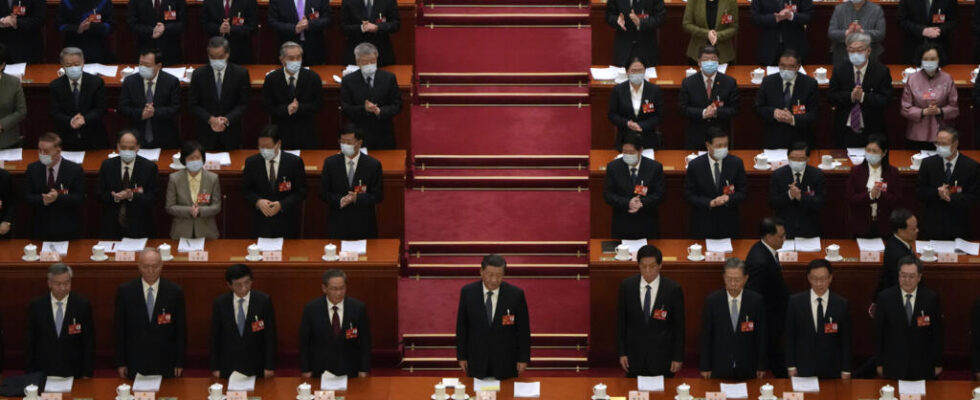Chinese President Xi Jinping condemned during a parliamentary session in Beijing containment » and the « repression of his country by Westerners and in particular by the United States, according to state media.
The subjects of friction have multiplied in recent years, from the treatment Uyghur Muslims to the imbalance of the trade balance, passing by Taiwan, the domination in advanced technologies or the accusations of espionage. They resulted in Western and in particular American sanctions targeting China, to which Beijing responded.
“ China’s external development environment has undergone rapid changes. Uncertain and unpredictable factors have increased significantly “Said Xi Jinping according to an account of the news agency China news published Monday evening March 6. ” Western countries, led by the United States, have implemented a policy of containment, encirclement and repression against China, which has led to unprecedented challenges for the development of our country. “, he added.
The 69-year-old leader, who is preparing to obtain an unprecedented third presidential term in a few days, spoke to members of an advisory committee during the annual parliamentary session. Xi Jinping also said that the past five years have been marked by a new set of obstacles, which threaten to slow down China’s economic rise.
► To read also: China wants to increase its coal production to ensure its energy security
Growing tension
Sino-US relations went through a particularly tense period last month, aftera Chinese airship was shot down by the American army, because accused of spying on American military installations. The case forced US Secretary of State Antony Blinken to postpone a visit to China that would have helped defuse sensitive issues such as China’s stance on the war in Ukraine, technology competition and the Taiwan issue.
China and the United States are in a fierce battle over semiconductor manufacturing as the Americans have lost their dominant position to the Asian giant. In the name of a supposed threat to its national security, the United States has multiplied in recent months the sanctions against Chinese chipmakers, now hindered from sourcing American technologies.
The visits of Western parliamentarians, particularly Americans, to Taiwan, an island whose sovereignty Beijing claims and intends to attach to mainland China, has also contributed to straining relations.
► To read also: Washington sells ammunition to Taiwan for its fighter jets
(with agencies)
